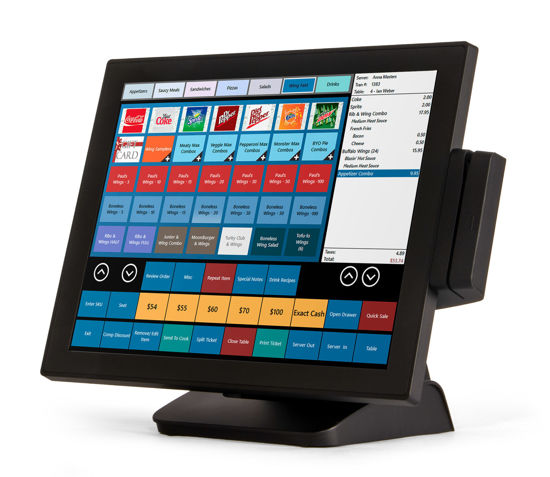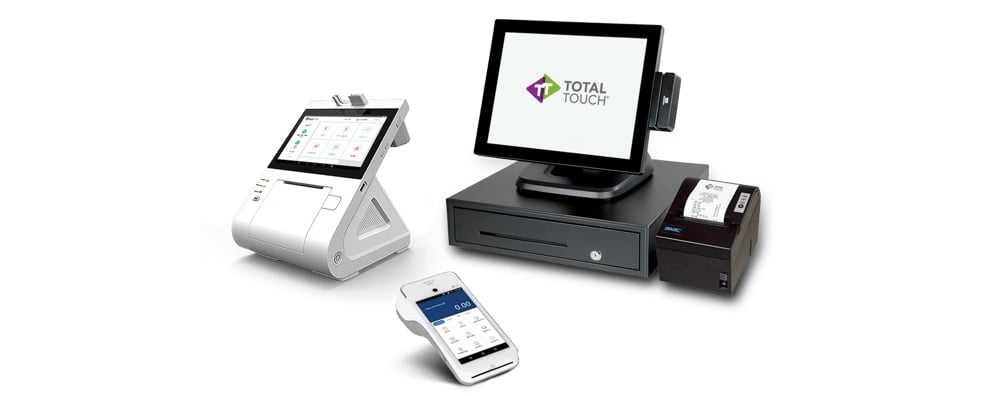Pos Systems Things To Know Before You Buy

POS Machine: Retail Point-Of-Sale Solutions Streamline Transactions
The Single Strategy To Use For Point Of Sale Software

Hardware Components of a Point of Sale System What makes a POS system tick? It's not simply software; the hardware plays a starring function. Consider it as the body to the software's brain. Without the best hardware, even the most sophisticated POS software application is just a quite face. Important POS Hardware So, what are the must-haves? Let's break it down. The central processing unit, frequently a computer or tablet, is the heart of the operation. The display or touchscreen show allows personnel to engage with the system. A barcode scanner accelerate the checkout process. Keep in mind the days of manually entering each code? The reliable invoice printer offers customers with a record of their purchase. A cash drawer keeps your cash safe and arranged. A card reader permits consumers to pay with credit or debit cards. Diving Deeper: Beyond the Fundamentals But wait, there's more! Depending on your company, you might require specific hardware. A dining establishment might integrate kitchen printers to relay orders, while a retail shop might use label printers for product tagging. Ever wonder how your local pastry shop instantly prints those delicious-looking labels? Choosing the Right Hardware: A Balancing Act Choosing the right hardware isn't just about check here purchasing the most pricey equipment. It's about discovering the sweet area in between functionality, sturdiness, and spending plan. A small service simply starting out might opt for a more standard setup, while a high-volume seller will need robust, high-performance devices. Is it better to purchase brand-new or utilized? Consider your alternatives thoroughly. A new system provides the most current technology and guarantee security, however a reconditioned system can save you cash. The Future of POS Hardware What does the future hold? Anticipate to see even more combination with mobile devices, biometric scanners for worker authentication, and advanced analytics dashboards showed on larger, clearer screens. Picture a world where inventory is immediately upgraded in real-time as items are scanned-- a world where you can track your best-selling item from throughout the world. The possibilities are limitless, and the hardware is constantly progressing to fulfill the needs these days's companies. Are you ready to update your point of sale system?
Software Application Features and Capabilities: The Heart of Your POS System
Ever watch an experienced barista slide through a hectic early morning rush? Their trick isn't just caffeine; it's a seamless dance with their POS system. The software application is the conductor of your organization symphony, managing whatever from sales to stock. What notes should you be listening for? What capabilities truly matter in today's market?
Inventory Management: Beyond Counting Beans
Forget spreadsheets that haunt your dreams. Modern POS systems provide real-time inventory tracking, signaling you when your stock of artisanal coffee beans dips precariously low. Think about it as a digital guardian angel, avoiding those uncomfortable "Sorry, we're out!" minutes to customers. What if you could also anticipate demand based on historic data? Lots of systems now offer forecasting tools, an effective weapon versus overstocking and lost sales. This assists avoid the circumstance of lacking popular products or building up excess inventory of slow-moving items, both of which can constrain capital and space.
Sales Reporting and Analytics: Deciphering the Information
Sales data is the brand-new gold, and your POS system is the miner. Forget feeling in one's bones just how much you sold today. Dive deep into the information to uncover trends, recognize your very popular items, and understand customer behavior. Which menu product pairs completely with the daily special? Which promo resonated most with your customers? These insights are not just fascinating; they're actionable intelligence. Without trusted sales reporting, navigating the complexities of business decision-making ends up being like cruising without a compass, increasing the opportunity of bad moves and missed chances.
Client Relationship Management (CRM): Building Bridges, Not Walls
Keeping in mind a regular client's name and favorite order is lovely, however scaling that personal touch is difficult. POS systems with CRM abilities allow you to track customer purchase history, preferences, and even birthdays. Envision immediately providing a discount on their birthday-- a small gesture that promotes commitment and encourages repeat service. But there is the possible snag of bad information quality, which can cause incorrect consumer profiles and inadequate marketing efforts.
Payment Processing: Simplifying the Transaction
The checkout experience can make or break a sale. Smooth integration with various payment techniques-- charge card, mobile wallets, even copyright-- is non-negotiable. Can your system manage split payments? Does it use secure tokenization to secure customer information? A clunky payment procedure resembles striking a sour note in your service symphony, potentially interrupting the entire efficiency. Ensuring compatibility with progressing payment technologies and adherence to security standards are critical for maintaining customer trust and functional efficiency.
Employee Management: Keeping the Group in Sync
From clocking in and out to managing permissions and tracking efficiency, worker management features simplify operations and improve accountability. Is scheduling a headache? Many POS systems use incorporated scheduling tools, enhancing staffing levels based on anticipated need. A common challenge that is typically overlooked is the obstacle of integrating worker management functionalities with payroll systems, which can result in mistakes and inadequacies in wage estimations.
Advanced Features: Leveling Up Your Operations
- Table Management: Suitable for dining establishments, this feature permits you to envision your dining-room, track table status, and manage appointments.
- Commitment Programs: Reward your finest clients and motivate repeat service with integrated commitment programs.
- Online Purchasing Combination: Seamlessly incorporate your POS system with online buying platforms to broaden your reach.
Picking the best POS system is about more than simply functionality; it's about finding a partner that can grow with your service. Consider your current requirements, anticipate future development, and don't be afraid to ask the difficult concerns. The ideal software application can change your company from a chaotic cacophony into an unified masterpiece.
Industry-Specific POS System Applications
Consider the regional pastry shop, bustling with early morning clients yearning fresh croissants. A generic POS system might manage deals, but can it manage intricate dishes, track component stock, or instantly change production schedules based on sales data? Most likely not. That is where the appeal of industry-specific POS systems shines.
Dining establishments and Hospitality
For dynamic restaurants, speed and precision are critical. How numerous times have you seen servers handling orders, modifications, and splitting expenses, all while attempting to supply exceptional service? A restaurant POS system simplifies these processes, enabling for table management, kitchen area order tickets, and even online ordering integration. These systems often include functions like ingredient-level inventory tracking, essential for handling food costs and minimizing waste. Ever question why your preferred meal is often unavailable? It might stem from a lack of correct stock management.
- Table Management
- Cooking Area Order Tickets
- Online Purchasing Combination
- Ingredient-Level Stock Tracking
Retail Solutions
Retail, with its varied inventory and customer interactions, demands a various set of tools. Envision a boutique clothing shop having a hard time to keep track of sizes, colors, and seasonal collections using a fundamental checkout system. An industry-specific retail POS system offers functions like barcode scanning, consumer commitment programs, and in-depth sales reporting. These systems can even incorporate with e-commerce platforms, offering a seamless omnichannel experience for clients. Did you understand some retail POS systems can predict future sales patterns based on historic information? Now that is powerful!
The Hazards of an Inequality
Selecting the incorrect POS system can produce significant operational hurdles. A clothes store utilizing a dining establishment POS, for example, would find it unsuitable for handling stock with sizes and colors. The lack of appropriate reporting and analytics might lead to mistaken buying choices and lost revenue. The result could be comparable to trying to fit a square peg in a round hole.
Key Factors to consider
Choosing an industry-specific POS system needs cautious assessment. Consider your business's distinct needs and functional workflows. Does the system integrate with existing software application? Does it offer the essential reporting abilities? Is it scalable to accommodate future growth? A well-chosen POS system is not just a deal tool; it's a strategic possession that can drive performance, improve consumer complete satisfaction, and eventually, enhance your bottom line. Keep in mind, it is a financial investment in your service's future, not just a cost.
Security Factors To Consider for Point of Sale Systems
Ever heard the tale of the mom-and-pop store that lost everything since of a single, neglected security flaw in their POS system!.?. !? It's a cautionary tale, and it highlights a critical aspect often eclipsed by the attraction of elegant functions and structured operations. The truth is, a POS system is only as good as its security. What excellent is a system that crunches numbers in a flash if it allows lawbreakers to swipe client's data just as rapidly?
The Vulnerability Minefield
The digital landscape is a battlefield. Every POS system, despite size or sophistication, is a possible target. Are you really prepared for the risks prowling around the corner? The genuine pinch comes when you discover that your outdated software application has an open hole that hackers can make use of, turning your business into an unwitting accomplice in identity theft. The difficulty is that hackers are crafty and are always altering their techniques.
Typical Security Spaces and Specialist Tips
- Weak Passwords: "Password123" isn't cutting it. Use strong, distinct passwords for all POS system accounts and change them frequently. Two-factor authentication is a must.
- Unsecured Networks: Your Wi-Fi is like leaving the front door open. Secure your network with strong file encryption (WPA3 if possible) and think about a separate network for your POS system.
- Outdated Software Application: Software application suppliers spot security holes all the time. Stopping working to update is like welcoming trouble. Establish automated updates or schedule regular maintenance.
- Worker Training: Your staff is your first line of defense. Train them to acknowledge phishing attempts, protect passwords, and report suspicious activity.
Information File Encryption: Your Shield Against the Dark Arts
Think about information encryption as a secret code. It scrambles delicate information, like charge card numbers, making it unreadable to unauthorized users. Without file encryption, your clients' financial information are like sitting ducks, ripe for the selecting by cybercriminals. It's not almost safeguarding your consumers; it has to do with securing your track record and avoiding hefty fines.
PCI Compliance: The Rulebook You Can't Overlook
If you accept credit cards, you're bound by the Payment Card Market Data Security Requirement (PCI DSS) It's a set of security requirements developed to protect cardholder information. Stopping working to comply can lead to fines, penalties, and even the loss of your capability to process charge card payments. It's a headache, yes, however it's a needed one. Consider PCI compliance as the expense of doing organization in the digital age.
Consider this: every transaction processed through your point of sale is a possible entry point for malicious actors. By implementing robust security procedures, you're not just safeguarding your business; you're protecting your customers' trust and ensuring the long-lasting viability of your operations. The security of your POS system isn't simply a technical concern; it's a service essential. It needs continuous alertness, proactive procedures, and a dedication to remaining ahead of the curve.
Comments on “How Clover Pos can Save You Time, Stress, and Money.”